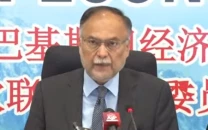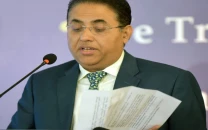Consumers seek uniform power tariff
Calls grow to abolish peak, off-peak rates as demand patterns shift; FESCO seeks massive tariff hike

Electricity consumers have urged the government to introduce a uniform power tariff structure by eliminating peak and off-peak hour rates. They argue that this change would encourage higher electricity usage and better reflect the current energy landscape, which no longer suffers from load shedding due to an increased power generation capacity.
The peak and off-peak system was originally implemented to manage electricity shortages during times of low installed capacity. Under this system, consumers were charged higher rates during peak hours to discourage consumption during those periods. However, during a public hearing conducted by the National Electric Power Regulatory Authority (NEPRA) on the Multi-Year Tariff (MYT) proposal for Faisalabad Electric Supply Company (FESCO) for FY2025-26, intervenors stated that the country now has surplus power and such differential pricing is no longer necessary.
They pointed out that with no immediate electricity shortages, the time has come to introduce a flat, uniform tariff that would promote consistent electricity use and potentially aid economic productivity.
Additionally, it was pointed out that the pattern of peak demand has shifted significantly due to the increasing contribution of solar energy through net metering. Previously, off-peak hours occurred in the evening, but now, with solar penetration, off-peak periods have moved to as late as 1AM, when consumer usage has seen a sharp rise. This shift further questions the relevance of the current peak and off-peak rate design.
Meanwhile, NEPRA's notice outlined that FESCO has requested significant changes in its cost structure. One of the most notable requests is a sharp increase in the Power Purchase Price (PPP), which the company proposed at Rs389.053 billion. This contributes heavily to the total Revenue Requirement, which FESCO seeks to raise to Rs505.432 billion, up dramatically from the current Rs80.003 billion.
If approved, this would result in a steep rise in the average consumer tarifffrom Rs5.37/kilowatt-hour (kWh) to Rs33.76/kWh. FESCO is also requesting an increase in Operation and Maintenance (O&M) costs from Rs34 billion to Rs44 billion, and a net margin boost from Rs54 billion to Rs64 billion. The company has reported transmission and distribution (T&D) losses at 8%.
During the hearing, NEPRA addressed several critical issues, including whether the proposed adjustments align with the MYT framework, and whether the requested PPP and T&D losses are justified. It also questioned if limiting investment beyond allowed amounts should be applied at the end of the control period rather than annually.
Further queries included whether the tariff schedule should follow a cost-of-service basis, if fixed charge mechanisms need revision to recover revenue, and whether current rate designs reflect the changing demand pattern. The application of late payment surcharges and adherence to regulatory guidelines were also under review.























COMMENTS
Comments are moderated and generally will be posted if they are on-topic and not abusive.
For more information, please see our Comments FAQ